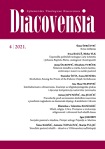Interkulturizam u obrazovanju
Interculturalism in Education
Significance for Religious-Pedagogical Practice and Acquiring Competencies of Religious Education Teachers
Author(s): Ana Thea FilipovićSubject(s): Education, Theology and Religion, Sociology of Religion, Pedagogy
Published by: Katolički bogoslovni fakultet u Đakovu
Keywords: development of interculturalism; religious education; intercultural education; intercultural learning; intercultural competence; interreligious learning; interreligious competence;
Summary/Abstract: What is interculturalism and what is its significance in education? How is the issue of intercultural education profiled in the context of religious-pedagogical thought and practice? Why is intercultural education also important for the training of religious education teachers? We try to answer these questions starting from basic concepts and perspectives and the possible importance of the topic for the Croatian context. The article focuses on the development of the idea of interculturalism as a pedagogical concept emerging from the problems of American society in the first half of the 20th century and its reception in the religious pedagogy of the place. It then shows the development of intercultural education in Europe in the second half of the 20th century and its religious-pedagogical relevance. The article then presents the newer socio-philosophical foundation of interculturalism which connects it with human rights and the ethics and politics of recognition of diversity. On this basis, it elaborates the significance of interculturalism for the education and competencies of teachers, especially religious education teachers with regard to intercultural and interreligious learning.
Journal: Diacovensia: teološki prilozi
- Issue Year: 29/2021
- Issue No: 4
- Page Range: 541-561
- Page Count: 21
- Language: Croatian

